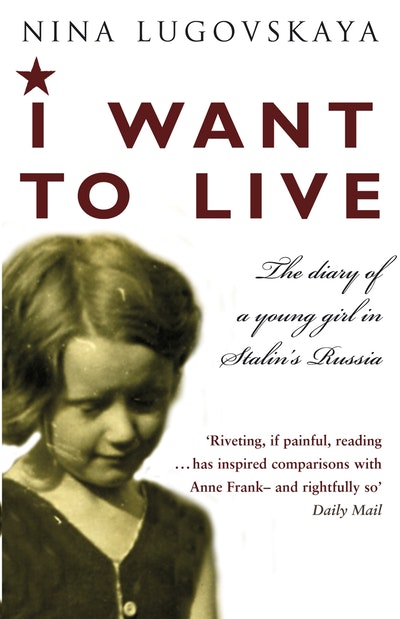- Published: 24 October 2016
- ISBN: 9781784162337
- Imprint: Black Swan
- Format: Paperback
- Pages: 400
- RRP: $25.00
I Want To Live
The Diary of a Young Girl in Stalin's Russia
- Published: 24 October 2016
- ISBN: 9781784162337
- Imprint: Black Swan
- Format: Paperback
- Pages: 400
- RRP: $25.00
Could do for the Russian experience of Stalin's terror what Anne Frank's The Diary of a Young Girl did for worldwide understanding of the Holocaust.
Lesley Chamberlain, Financial Times
Nina's diary is touching: it will strike both teenage and adult readers with a terrible pang of recognition . . . Where she does touch on politics, her views are, it must be said, remarkably mature and intelligent . . . she is a shrewd commentator.
Charlotte Hobson, Daily Telegraph
Could do for the horrors of Stalinism what the diary of Anne Frank did for the Holocaust . . . the tragedy of Nina Lugovskaya is that a lively, compellingly ordinary girl was made to suffer so grievously for being so human.
Time magazine
An astonishingly well-written and perceptive chronicle.
The Times
Riveting, if painful, reading...singularly moving...Her diary has inspired comparisons with Anne Frank - and rightfully so.
Daily Mail
Remarkably well informed and perspicacious...a monument to a girl's reckless defiance of indoctrination and intimidation.
Literary Review
Carries poignant echoes of Anne Frank's diary. Both offer an innocent young girl's perspective on horrifying world events . . . but the essential difference is that Nina's diary was the reason for her arrest.
Mail on Sunday
Extraordinarily frank and eloquent diary [which] proved to be her undoing . . . Modern readers will be struck not only by Nina's perceptiveness and intelligence, the elegance with which she could write when her adolescent gloom lifted, her confused feelings for her father, her interest in current events and the well-informed hostility she nurtured for the Bolseheviks - but also by the sheer recklessness of her act of self-expression.
Times Literary Supplement
Nina's is an account of a stifled teenage life in a time of terror, a tale of fear and self-loathing...it is extraordinary that such an account should have reached us at all...There is some excellent reportage about food shortages...some unfathomably well-informed commentary on the famine in Ukraine; dangerous personal delight in the murder of a Politburo member...Nina's depression and angst were seen as signs of criminal degeneracy and the idea that her most intimate, self-sabotaging thoughts were also there to be policed now seems almost heartbreaking.
Observer
A poignant and ultimately tragic diary that recounts what it was like to grow up in Stalin's Soviet Union has been hailed as Russia's answer to Anne Frank.
Sunday Herald
Will capture the imagination of teenagers and help them understand the 1930s in the same way as Anne Frank's diaries have helped students to understand the Holocaust. If you read a book like this you're touching the past. It brings the period to life in a way that nothing else does.
Sunday Tribune
